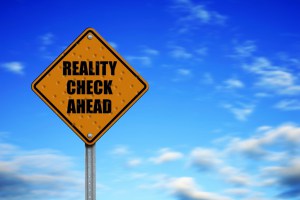Summary:
To a mainstream economist, theory means model, and model means ideas expressed in mathematical form. In learning how to “think like an economist,” students learn certain critical concepts and models, ideas which typically are taught initially through simple mathematical analyses. These models, students learn, are theory. In more advanced courses, economic theories are presented in more mathematically elaborate models. Mainstream economists believe proper models – good models – take a recognizable form: presentation in equations, with mathematically expressed definitions, assumptions, and theoretical developments clearly laid out. Students also learn how economists argue. They learn that the legitimate way to argue is with models and econometrically constructed forms of evidence … Because all models are incomplete, students also learn that no model is perfect. Indeed, students learn that it is bad manners to engage in excessive questioning of simplifying assumptions. Claiming that a model is deficient is a minor feat – presumably anyone can do that. What is really valued is coming up with a better model, a better theory. And so, goes the accumulated wisdom of properly taught economists, those who criticize without coming up with better models are only pedestrian snipers.
Topics:
Lars Pålsson Syll considers the following as important: Economics
This could be interesting, too:
To a mainstream economist, theory means model, and model means ideas expressed in mathematical form. In learning how to “think like an economist,” students learn certain critical concepts and models, ideas which typically are taught initially through simple mathematical analyses. These models, students learn, are theory. In more advanced courses, economic theories are presented in more mathematically elaborate models. Mainstream economists believe proper models – good models – take a recognizable form: presentation in equations, with mathematically expressed definitions, assumptions, and theoretical developments clearly laid out. Students also learn how economists argue. They learn that the legitimate way to argue is with models and econometrically constructed forms of evidence … Because all models are incomplete, students also learn that no model is perfect. Indeed, students learn that it is bad manners to engage in excessive questioning of simplifying assumptions. Claiming that a model is deficient is a minor feat – presumably anyone can do that. What is really valued is coming up with a better model, a better theory. And so, goes the accumulated wisdom of properly taught economists, those who criticize without coming up with better models are only pedestrian snipers.
Topics:
Lars Pålsson Syll considers the following as important: Economics
This could be interesting, too:
Lars Pålsson Syll writes Schuldenbremse bye bye
Lars Pålsson Syll writes What’s wrong with economics — a primer
Lars Pålsson Syll writes Krigskeynesianismens återkomst
Lars Pålsson Syll writes Finding Eigenvalues and Eigenvectors (student stuff)
 To a mainstream economist, theory means model, and model means ideas expressed in mathematical form. In learning how to “think like an economist,” students learn certain critical concepts and models, ideas which typically are taught initially through simple mathematical analyses. These models, students learn, are theory. In more advanced courses, economic theories are presented in more mathematically elaborate models. Mainstream economists believe proper models – good models – take a recognizable form: presentation in equations, with mathematically expressed definitions, assumptions, and theoretical developments clearly laid out. Students also learn how economists argue. They learn that the legitimate way to argue is with models and econometrically constructed forms of evidence …
Because all models are incomplete, students also learn that no model is perfect. Indeed, students learn that it is bad manners to engage in excessive questioning of simplifying assumptions. Claiming that a model is deficient is a minor feat – presumably anyone can do that. What is really valued is coming up with a better model, a better theory. And so, goes the accumulated wisdom of properly taught economists, those who criticize without coming up with better models are only pedestrian snipers.
Diana Strassman
To a mainstream economist, theory means model, and model means ideas expressed in mathematical form. In learning how to “think like an economist,” students learn certain critical concepts and models, ideas which typically are taught initially through simple mathematical analyses. These models, students learn, are theory. In more advanced courses, economic theories are presented in more mathematically elaborate models. Mainstream economists believe proper models – good models – take a recognizable form: presentation in equations, with mathematically expressed definitions, assumptions, and theoretical developments clearly laid out. Students also learn how economists argue. They learn that the legitimate way to argue is with models and econometrically constructed forms of evidence …
Because all models are incomplete, students also learn that no model is perfect. Indeed, students learn that it is bad manners to engage in excessive questioning of simplifying assumptions. Claiming that a model is deficient is a minor feat – presumably anyone can do that. What is really valued is coming up with a better model, a better theory. And so, goes the accumulated wisdom of properly taught economists, those who criticize without coming up with better models are only pedestrian snipers.
Diana Strassman
